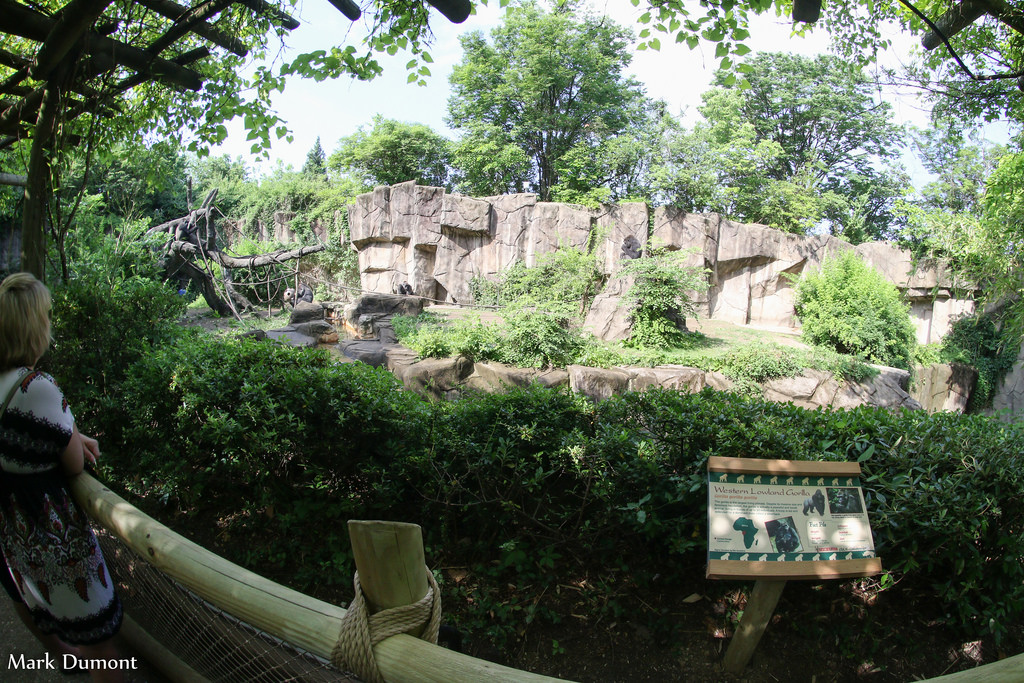Let’s Hear It For The Gorilla Boys!
A new bachelor gorilla group has arrived!
Chipua (Chip), Pendeka (Pende) and Kongo arrived at the Cincinnati Zoo & Botanical Garden in early July of 2023. This move facilitates the Species Survival Plan (SSP) goals for the Association of Zoos and Aquariums (AZA) gorilla population, which includes all gorillas housed in US facilities accredited by AZA. We are also excited to house this bachelor troop, as it is the first time the Cincinnati Zoo has housed this type of troop structure in its long history of caring for gorillas! We look forward to sharing this experience with our Zoo members and guests.
Bachelor troops serve an important purpose, existing in native habitat regions throughout Central Africa as well as in other AZA facilities. As young males age, they leave natal family groups to eventually establish a family troop of their own. Males will either live as solitary individuals, in the periphery of other family troops, or in all-male groups. This timeframe is essential for males, who must mature physically and socially before successfully leading a family troop. In AZA facilities, these bachelor troops allow social opportunities once individuals have needed to leave their natal group. Sometimes this acts as an intermittent step before establishing a family troop, but other times all-male troops can become well-established social units that last decades!
Compared to family troops, bachelors have different social dynamics. Aggression is an important behavior in these troops; sometimes this looks like displacement between two individuals, vocal conflict, or a physical altercation. While these events may look concerning to people, they serve an important purpose in gorilla society. Aggression helps to establish and maintain a hierarchy, teaching all the gorillas in the troop how to appropriately interact with each other and navigate their dynamic social structure.
As aggression happens, gorillas will inflict wounds. Wounding is completely normal, although it can look a bit scary! Where wounds occur and how severe they look can indicate a lot about a troop’s social development. As wounding happens, the animal care and veterinary teams closely monitor everything to make sure healing progresses as normal. If needed, gorillas can be given medication to prevent infection or offer pain relief. This is closely evaluated on a daily basis to support happy and healthy gorillas!
As Chip, Pende, and Kongo adjust to their new home, we are excited to provide their daily care and support their social needs. Please join us in welcoming the boys to their new home!
Meet the silverbacks!
Chipua
Chipua, or Chip, was born on September 6, 1996 at the Bronx Zoo. His name means “bud, grow, sprout” in Swahili. He has a short/squatty body and beautiful eyes. He weighs around 400 pounds and is very picky when it comes to food
Chipua is very serious when it comes to gorilla politics. He was the leader of the bachelors for a long time until youngest brother Kongo hit a growth spurt and took over by size.
Pendeka
Pendeka, or Pende, was born on January 14, 1998 at the Bronx Zoo. His name means “to be loved” in Swahili. You can tell him apart by his thinner face that is more elongated than the other two. He weighs around 370 pounds. He is the most likely gorilla in the group to be seen bipedal on habitat. It frequently occurs when it’s raining outside, but has been observed when he’s walking through the snow. He does it a lot more often than his half-brothers. When it’s raining and he starts to walk upright, he tends to stick out his tongue to catch the water as he goes from one side of the habitat to the other!
Kongo
Kongo is the dominant gorilla in the group based on sheer size and stature. Mbeli means “little” in Swahili, so he’s Little Kongo, named after his Great Grandfather Kongo. He weighs around 430 pounds and has long legs and is quite tall for a gorilla. He has a lazy eye and is really confident and dominant. Has eased up over the last couple of years, but still holds court when he needs to. Despite being the youngest, he uses his size to his advantage.

